Posted in: 03/20/2022
The World Day for Social Justice , a date officially established by the United Nations (UN) in 2007 , aims to highlight and reinforce the need to promote equal rights and combat inequalities , which occur in various fields.
Poverty, racism, social exclusion for reasons of religion, sexual orientation, gender, nationality, among others, have been some of the main issues addressed when we deal with tackling inequalities and promoting social justice .
In recent years, as a way of indicating and remembering that the inequalities seen as the main ones have consequences that go far beyond what is seen, UN campaigns have highlighted specific sectors that need a more careful look in relation to the end of disparities .
In 2021, for example, the UN highlighted the importance of social justice in the digital economy . The Organization demonstrated the impact of the pandemic on people who do not have access to the internet and digital technologies.
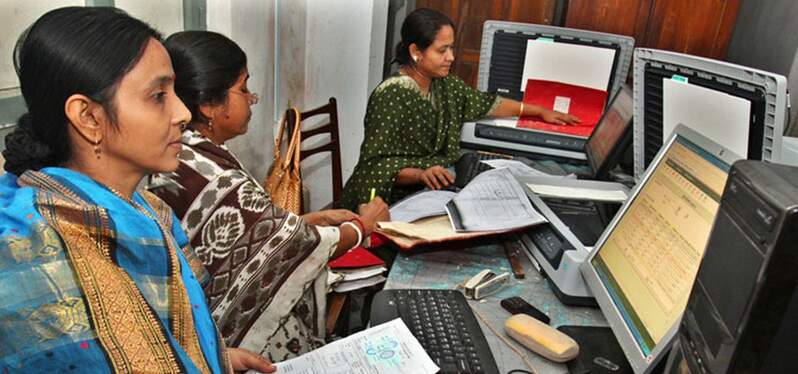
At a time when most services have migrated to the online environment , the digital divide has become even more evident, increasing inequalities. Here, workers were also included – who did not have their work regularized for the new scenario – and small and medium-sized companies, which are not always able to compete with the larger ones, much more prepared for the digital transformation .
In 2020, the UN brought the theme “ Closing the inequality gap to achieve social justice ” and highlighted that at least 20% of the world’s population lived in moderate or extreme poverty .
It is worth mentioning that the United Nations Development Program (UNDP) disclosed, as early as 2021, that 1.3 billion people in the world live in poverty , which affects ethnic groups and women more seriously . In other words, the number continues to grow.
In Brazil, extreme poverty would have affected 27 million people in 2020 – which was only avoided thanks to social programs , according to data from the Brazilian Institute of Geography and Statistics (IBGE). Still according to IBGE data, in the same year, 52 million people were in poverty and 13 million in extreme poverty.
The concept of social justice presupposes the idea that social development for everyone will only be possible after recognizing that not all people have the same opportunities. Therefore, it is necessary to think about policies and actions in favor of the most vulnerable groups , seeking equity by compensating for inequalities.
Thus, social justice will only be achieved through the understanding that the end of social inequalities is everyone’s duty, and that actions are needed in favor of equal rights and protection of the most vulnerable people, both in terms of economic as well as social.
For this, the State has a fundamental role , since it is its duty to guarantee mechanisms that reduce social disparities , mainly through the creation of inclusion policies . Ensuring access to education, health, decent work and combating all types of prejudice are among the main actions to promote social justice.
And one of the ways to guarantee it is through Social Protection , an important mechanism, mainly to reduce inequalities aggravated by the covid-19 pandemic. For Shahra Razavi, director of the Social Protection Department of the International Labor Organization (ILO):
“Social protection is an important tool that can generate far-reaching economic and social benefits for countries at all levels of development. It can favor better health and education, greater equality, more sustainable economic systems, better migration management and respect for fundamental rights. Building systems that can generate these positive outcomes will require a combination of funding sources and greater international solidarity, especially with support for the poorest countries. But the benefits of success go beyond national borders to benefit all people” ( Testimony for the ILO website )
According to the “ World Report on Social Protection 2020 – 22 ”, recently released by the ILO, the pandemic has increased inequalities and highlighted the alarming global figure of 4.1 billion people without any access to social protection services . The number corresponds to 53% of the world’s population.
Although many countries have joined the race to guarantee social protection, which has generated an expansion in the number of services offered , the increase has not been enough. It is also necessary to highlight that, being among the 47% who have access to some type of social protection service does not mean that the person is receiving all the services to which he is entitled. It just means she had access to the bare minimum.
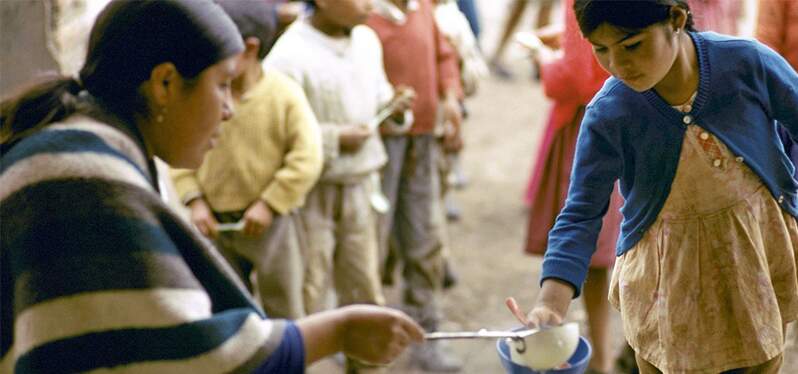
It is important to highlight that, according to the Global Wealth Report , released in 2021, Brazil is one of the most unequal countries in the world , with 1% of the richest population concentrating 49.6% of all the country’s wealth. This was considered the worst level of income concentration in the last two decades.
Data like this further demonstrate the need for social protection services to support the most vulnerable populations , and also to reduce inequalities.
Social protection services seek to meet the local demands of countries when it comes to fulfilling the basic requirements to promote the end of inequalities and social justice, especially those related to health and the economy.
But when we speak globally, there are guiding parameters that can be followed by countries, aiming at sustainable development and social justice: they are the Sustainable Development Goals .
The Sustainable Development Goals (SDGs) were created to guide and guarantee global cooperation towards the sustainable development of all nations, especially those that are in vulnerable situations, with high rates of poverty and hunger.
There are 193 countries , including Brazil, committed to the SDGs established by the UN, within the 2030 Agenda , which aims to eradicate poverty and economic, social and environmental development on a global scale.
Thus, the UN directs the associated countries to comply with the 17 Sustainable Development Goals , aiming to promote Social Justice and implement the commitment between governments, companies and society, as a guide for action.
Discover all the Sustainable Development Goals and the 2030 Agenda
Although we are mainly talking about the strength of global and State actions to promote social justice, we cannot exclude that private companies can, and should, also play a fundamental role in encouraging development and equity .
Synergia works with projects and solutions aligned with the SDGs and the 2030 UN Development Agenda, mainly with regard to the territorial development promoted in the places where it operates and its communities.
Adherence to the Global Compact – a UN initiative to engage companies in favor of human, labor, environmental and anti-corruption rights – was also one of Synergia’s main achievements in relation to the goal of contributing to a more equal society. Being a signatory company of the Global Compact is collaborating with our planning for a more direct action in some of the Sustainable Development Goals.
Some of Synergia’s main projects invested in training and access to decent work , promoting job and income generation and sustainable development for communities through solidarity economy and community strengthening.
Another important point is the integration between stakeholders, contributing to the goal of developing effective , inclusive , transparent and accountable institutions , as suggested by SDG 16: Peace, Justice and Effective Institutions.
Also internally, the company is committed to social justice . Therefore, it seeks equity in all its selection processes , and considers issues such as representation and inclusion, guaranteeing a selection without distinction of race, social class, regionality, nationality, religion, gender, people with physical or mental disabilities, sexual orientation, appearance, ideology, language and any other form of discrimination and prejudice.
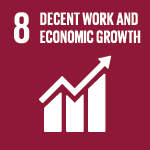
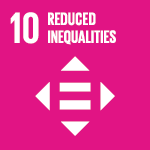
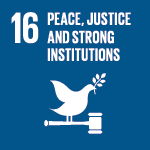
Sign up and receive our news.